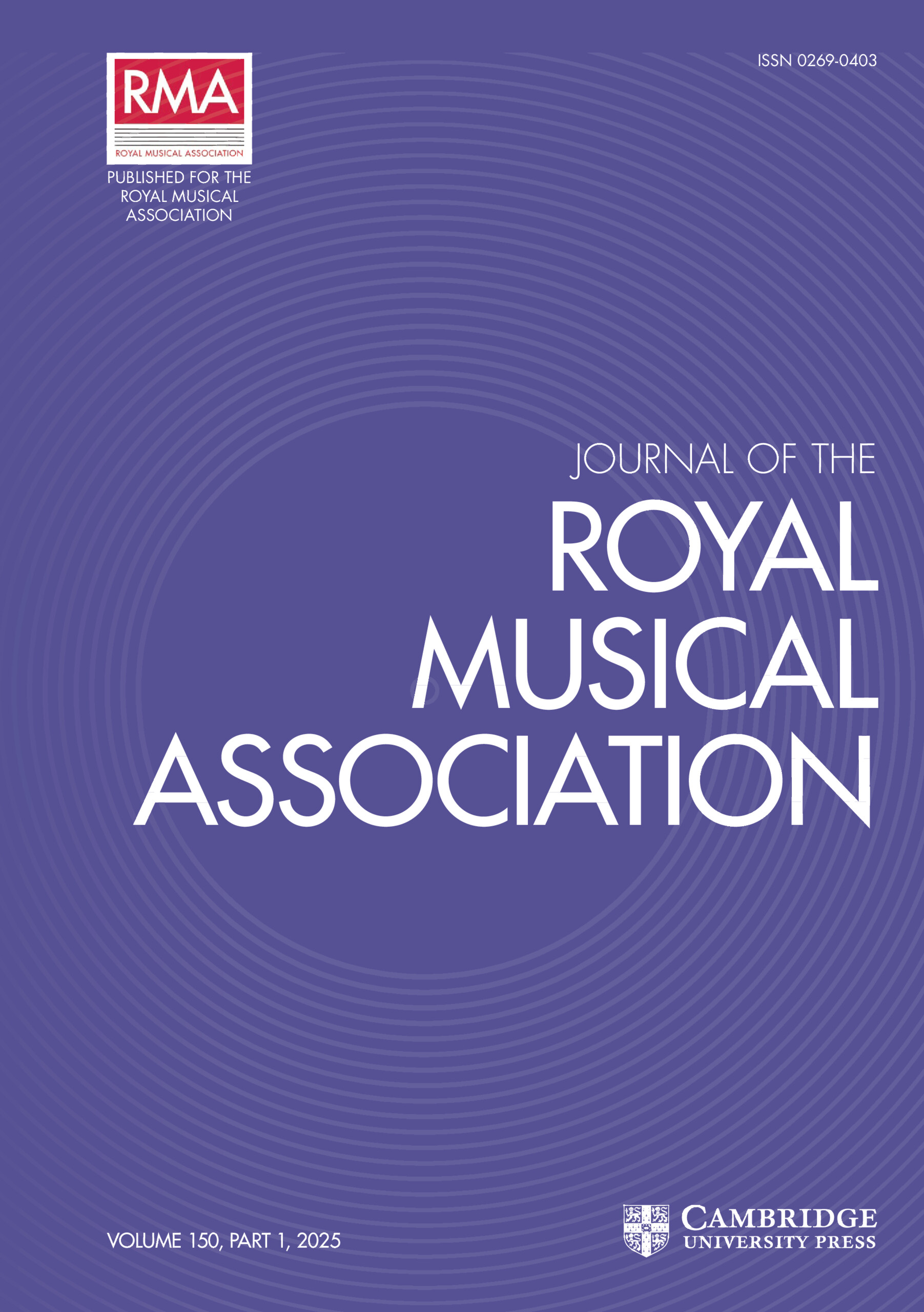I wasn't going to apply for this job. I saw the announcement on the RMA Bulletin inviting applications for the editorship, but after a spark of ‘Oh, that would be fun’ had flitted through my mind, it left again just as quickly as you can say, ‘Don't be daft.’ It struck me almost preconsciously that I was not ‘the sort’ that ‘they’ would want: no Oxbridge or Ivy League on my CV, and far too much queer theory in my scholarship to be let loose with JRMA. And yet here I am.
It's been a couple of years since I started shadowing my predecessor, Laura Tunbridge, and I meant to write this sooner. But things have been shifting ‘behind the scenes’, and now is just the right time for it. As our fearless leader, RMA president Simon McVeigh, has recently announced to members, JRMA and RMARC are moving publishers with effect from January 2020 to Cambridge University Press. We've had superb support from Taylor & Francis since joining them in 2009, and we're indebted to the team there for such hard work and care over the years. Equally, we're very much looking forward to joining an illustrious list of some of the field's most esteemed journal titles at one of the world's leading university presses.
The move of press coincides with a change in the advisory structure of the journal. Regular readers will be familiar with the International Advisory Board, complemented by an Editorial Board consisting of members of the RMA's Publications Committee. The new model is a simple, single editorial board; the aim is for a more streamlined and active advisory structure. It is therefore my immense pleasure to introduce the new Editorial Board to you – please do take a moment to glance at their names in this issue's front matter. In inviting them to join the board at this particular juncture in the journal's history, I sought a breadth of disciplinary specialisms (from medieval music to ludomusicology), an international reach (from Norway to New Zealand), a variety of levels of experience (from internationally established names to early-career researchers) and a diverse range of subject positions (of course, given the importance of paying attention to such matters in all areas of our lives). I'm delighted to have found quite the ‘dream team’ in all these regards, and I'm personally thrilled to be working with them.
We've already met once as a board, and there are exciting times ahead for JRMA. The journal remains absolutely committed to maintaining the quality of work for which it is known, and to continuing to offer a respected space for the publication of high-level and rigorous work in all areas of musical scholarship. Within this context, I'm keen as editor to open up increased variety in terms of the subdisciplines represented in these pages – scholars of popular music, audiovisual media, music psychology, music pedagogy and radical theoretical work can all, I hope, consider JRMA a suitable home for their work. Furthermore, I hope we can foster work in formats other than the classic long research article. Naturally, that is an important format in our scholarship, and I have no doubt that it will remain a central element of what JRMA publishes. But I'm already seeing proposals for round tables and for shorter and more experimental pieces of writing, and this is very much to be encouraged too. I often exhort my students to see academic scholarship as a very slow conversation (sometimes glacially so!); I actively welcome any version of scholarship that allows that conversation to be live, dynamic and visibly in progress. Indeed, this might even take the form of contributions that are not primarily (or even at all) written: certainly I would be keen to see work from practitioner-researchers using audiovisual formats in part or in whole, and if any readers have ideas for other types of format I would be very eager to hear about them. The RMA will soon be canvassing opinions on both the Journal and the Research Chronicle, but in the meantime, if readers have any thoughts about the future direction of JRMA then I warmly invite them to get in touch with me directly.
But the great challenge faced by a journal like this is precisely its breadth. What is it that distinguishes JRMA, if it will publish on any subject in the broad field of music studies? What work fits best? Of course, the clue is in the question, the solution in the challenge itself. It is essential that we continue to publish work only of the highest calibre, work that holds to the highest standards of scholarship. Yet in being a journal pitched at a broad readership, it must also speak to that breadth, and so I'm seeking to encourage work that ‘speaks beyond’ its own specificity, finding a productive balance between the necessary detail that is born of rigour while also looking to speak to a wider audience and maximize its significance.
In short, I see it as the most enormous privilege of my career so far to serve as editor of this journal, and my mission to ensure its pages represent the full breadth of the discipline. This is as wide-ranging a field as there are scholars within it, so of course there's a place (even) for someone ‘like me’.


